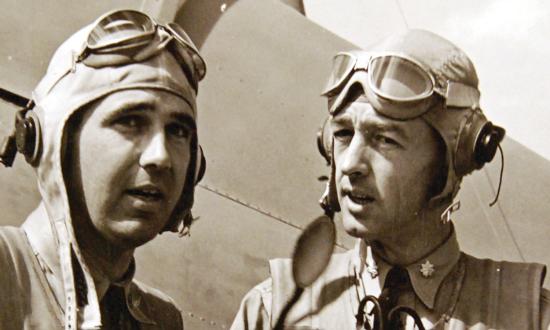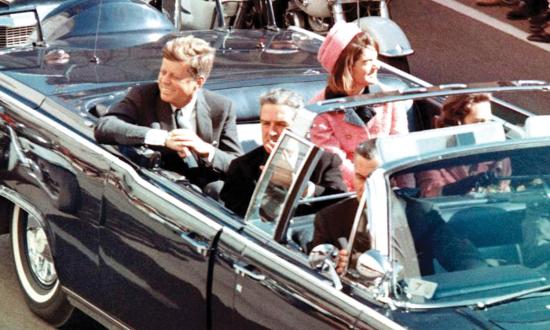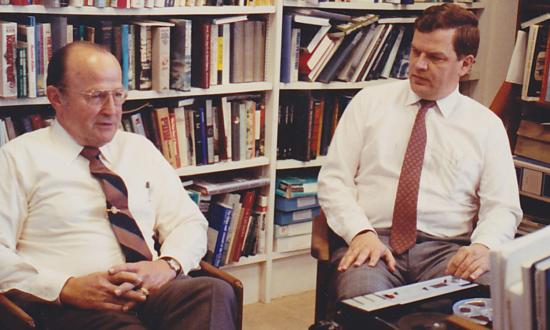Naval aviator John Joseph Hyland Jr. was awarded the Distinguished Flying Cross and the Silver Star during World War II. From 1965 to 1967, then–Vice Admiral Hyland was Commander, Seventh Fleet, and received the Distinguished Service Medal for “exceptionally meritorious service” and “outstanding leadership . . . during this critical period of continued intensification of combat operations and the concomitant buildup of forces and facilities in Southeast Asia.” In this excerpt from his U.S. Naval Institute oral history, Admiral Hyland opines about how the Vietnam conflict was not a favorable time for flag officers, because they were forced to fight a war with their hands tied:
It was a very awful time to become a relatively senior guy, because very shortly we began getting into that business of fighting a war and risking these marvelous young people, but not having any real intentions of winning it. They [Secretary of Defense Robert McNamara and his so-called Whiz Kids in the Pentagon] absolutely controlled everything we did and fixed things so that we couldn’t do what we all knew should have been done if we were going to win it. And mainly it was the idea that if you are going to use something like air power, you’d better use it overwhelmingly, to the full extent you can do, and do it right away, and do it so hard and so vigorously that maybe the other guy will just fold.
But when you’re doing it piecemeal, you’re going to drop one bomb today, we’ll try two bombs tomorrow, we’ll try three bombs the next day, and so on—pretty soon he’s going to get the message, and he’ll realize that we don’t really mean business. All it really does is give them plenty of time to get ready for the third day and the fourth day and the subsequent days, and so on. And that’s exactly what happened. We never were allowed to hit all targets at once that should have been hit.
It was kind of an amazing performance. But that particular group, that still now are called the “Whiz Kids,” had absolutely no reluctance at all to manage that campaign. They would even be willing to decide at what altitude a photographic airplane should be flying in order to take the best pictures, and they didn’t really know anything about photographing from a high-speed airplane and so on. I think I’m tending here to tell a sour grapes story that, you know, if we’d been turned loose, we’d have won the war. And I honestly do think we would have ended it a hell of a lot sooner if we’d been allowed to really go after them from the very outset, but we weren’t.
We would be getting messages back from people who were actually doing the flying, doing the fighting, wanting to know what was the trouble? Why couldn’t they get better targets, more targets? And everybody was working hard on it. You know, to think that whole mess could have gone on as long as it did without any protest from, let’s say, a very senior officer, I don’t really know.
All along we thought they were getting the news. We thought that it was beginning to penetrate them finally that the only way to do this—if we were ever going to win it—would be to go after them. But by that time it had gone on so long that they began to have doubts about whether it could ever be done. I’ve asked myself, now that I’m out of it and long gone from it, “What was the matter with you?” I haven’t been one of these guys who write an indignant book, but I could. But then the way that’s received normally when it’s by an officer who’s retired and he writes this sort of sour-grapes book, they say, “Well, what the hell’s the matter with him? When he was on active duty, why didn’t he sound off then?”
Well, the answer is he did sound off then and at great length, but always within the system. We never thought it was proper to go public. And if you had, I’m sure you wouldn’t have lasted ten minutes.







